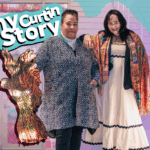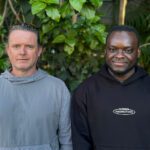Becoming a leader in your field of study is fundamentally becoming an agent of change. Drawing on the Social Change Model of Leadership, which underpins the Curtin Leaders Program and Skills for Success workshops, a leader is one who through an awareness of self, seeks to effect change at a local and global level. Not an easy task, yet one that is welcomed and embraced by many Curtin students, including Emily Letch-Avenell.
Emily is in her second year of studying Human Resource Management and International Business, and has always had a keen passion and enthusiasm for sustainability and environmental consideration within industry. Emily has recently returned from an international experience to Norway, a journey focussed on change, particularly change makers in the sustainability sector.
During her two-week trip, Emily saw first-hand how Norway, aware of its international obligations, has shifted its mindset from an individualistic and reactive community to a proactive and collectivist society. Through walking tours and industry visits, she was introduced to the need for various segments, including environmental, economic and social sustainability, to run in conjunction with each other so the country can unite behind a common goal.
The cultural and societal immersion offered Emily a rare opportunity to see how another country functions and their perspectives on global issues. The citizens of Norway are conscious of the impact their actions have on the planet, as well as the consequences of their practices.
Emily undertook industry visits that included marine, government, universities, retail and energy companies. She also visited many of the Norwegian fjords, folk museums, the Polar Exploration Museum and the Oslo Opera House to gain a complete cultural experience. Two initiatives stood out to Emily – one involving Norway’s recycling initiatives, and the other was Norway’s goal to have their entire public transport system 100% electrically powered by the end of this year.
Emily was inspired to see how much can be achieved when the government is proactive and future focussed. She shared how Norway uses the word ‘co-opetition’, meaning companies collaborate at a local level to progress the nation and compete at a national level. A change in mindset was needed, one that incorporates connectivity and collaboration. This resulted in a progression of industry and allows for sustainability targets and goals to be met.
Emily is keen to continue to educate herself and others within the area of environmental sustainability, to become a leader, an agent of change. She is currently a Curtin Volunteers! Leader and, as a John Curtin Undergraduate Scholar, frequently participates in professional development workshops.
Becoming a leader is a lifelong journey, there is no one size fits all approach. Although there are certain traits effective leaders demonstrate – a growth mindset, emotional intelligence, continual exploration of self, curiosity, compassion, and kindness to name a few. Leadership is a dynamic and collaborative process, one undertaken with an intent to effect positive social change.
If you are keen to explore your own leadership potential, enrol in the Skills for Success leadership development workshop series running this semester. If you would like to know more, please email leadership@curtin.edu.au.
This article was written by Student Development Consultant (Leadership), Libby Kinna.



